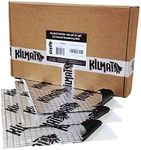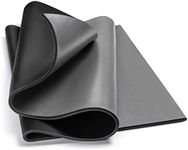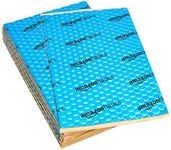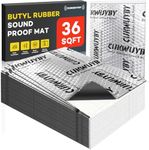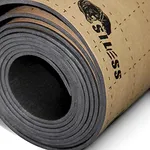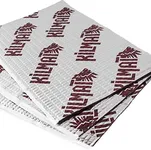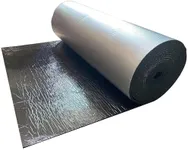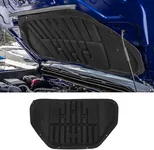Buying Guide for the Best Sound Deadening For Cars
Choosing the right sound deadening material for your car can significantly improve your driving experience by reducing road noise, vibrations, and enhancing the overall sound quality of your car's audio system. To make an informed decision, it's important to understand the key specifications and how they relate to your specific needs. Here are the main factors to consider when selecting sound deadening materials for your car.Material TypeSound deadening materials come in various types, including butyl rubber, foam, and asphalt-based products. Butyl rubber is highly effective and durable, making it a popular choice for many car enthusiasts. Foam materials are lightweight and can be used in areas where flexibility is needed. Asphalt-based products are generally cheaper but can emit odors in high temperatures. Your choice should depend on the area of application and your preference for durability and effectiveness.
ThicknessThe thickness of the sound deadening material is crucial as it directly impacts its ability to reduce noise and vibrations. Thicker materials generally provide better sound insulation. Common thicknesses range from 50 mils to 150 mils. For high-noise areas like the floor and doors, thicker materials (100-150 mils) are recommended. For less critical areas, thinner materials (50-80 mils) may suffice. Consider the level of noise you experience and the specific areas you want to treat when choosing the thickness.
Coverage AreaThe coverage area refers to the amount of material you need to cover the desired sections of your car. Sound deadening materials are usually sold in sheets or rolls, and the total coverage area is measured in square feet. To determine how much you need, measure the areas you plan to treat, such as the floor, doors, roof, and trunk. Ensure you purchase enough material to cover these areas adequately, keeping in mind that some overlap may be necessary for optimal performance.
Ease of InstallationEase of installation is an important factor, especially if you plan to install the sound deadening material yourself. Some materials come with adhesive backing, making them easier to apply, while others may require additional adhesive or tools. Look for products with clear instructions and consider your own DIY skills. If you're not confident in your ability to install the material, you might want to choose a product known for its user-friendly application or consider professional installation.
Heat ResistanceHeat resistance is a critical specification, especially for areas exposed to high temperatures, such as the floor near the engine or the roof. Materials with high heat resistance will not degrade or emit odors when exposed to heat. Butyl rubber and some high-quality foam materials offer good heat resistance. If you live in a hot climate or plan to apply the material in high-temperature areas, prioritize products with high heat resistance to ensure longevity and performance.
WeightThe weight of the sound deadening material can affect your car's performance and fuel efficiency. Heavier materials generally provide better sound insulation but can add significant weight to your vehicle. Lighter materials are easier to handle and install but may not offer the same level of noise reduction. Consider the balance between sound insulation and added weight. If you are concerned about performance, opt for lighter materials that still offer good sound deadening properties.
